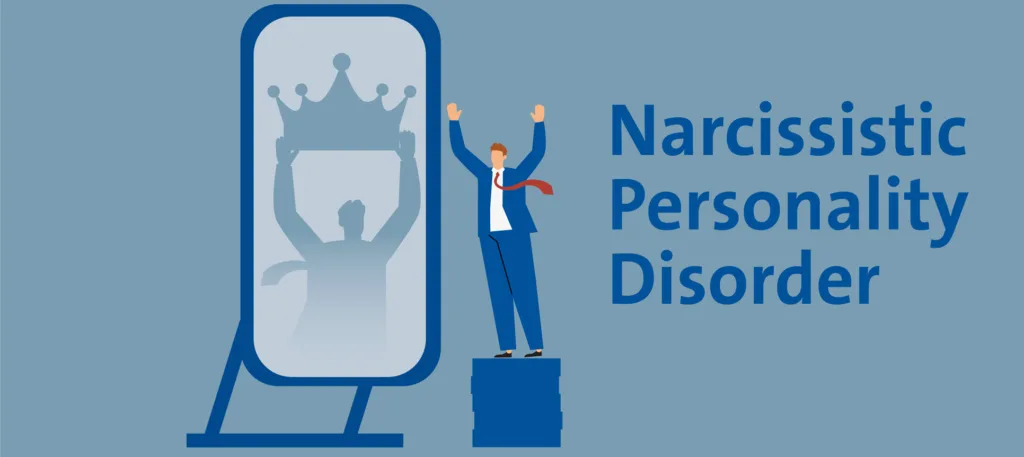Narcissism is a personality disorder that affects a significant number of people worldwide. The condition is characterized by an inflated sense of self-importance, a constant need for admiration, and a lack of empathy towrds others. While some people with narcissistic traits may exhibit overt behaviors, others may engage in covert narcissism, making it harder to spot the signs.
Covert narcissism is a term used to describe individuals who exhibit symptoms of narcissistic personality disorder but are better at hiding their traits. These individuals may not act as grandiose or attention-seeking as overt narcissists, but they still have a deep sense of entitlement, a lack of empathy, and an intense need for admiration.
One of the most common questions people ask about narcissists is whether they know they are narcissists. The answer to this question is not straightforward, as it depends on the individual’s level of self-awareness and the severity of their condition.
Most narcissists are not aware of their behavior, as they lack the ability to see things from other people’s perspectives. They believe that their actions are justified and that they are entitled to behave in a certain way. If someone tries to confront them about their behavior, they may get defensive and deny any wrongdoing.
However, as narcissists age, they may become more conscious of their behavior and the impact it has on others. They may start to realize that their behavior is not acceptable and may try to change their ways. However, this change is often superficial and only done to benefit themselves.
It’s also worth noting that some narcissists are aware of their behavior and use it to their advantage. They may manipulate and gaslight people to get what they want, but they’re fully aware of what they’re doing.
Whether or not narcissists know they are narcissists is a complicated question. While some may lack the self-awareness to recognize their behavior, others may be fully aware of what they’re doing and use it to their advantage. It’s important to remember that narcissistic behavior is harmful and can have a significant impact on those around them. If you suspect that someone in your life may have narcissistic traits, it’s essential to seek help and support from professionals.
Can Narcissists Be Unaware of Their Narcissism?
Yes, it is possible for a narcissist to be unaware of their condition. In fact, many individuals with narcissistic personality disorder (NPD) are not self-aware and do not believe they have a problem. This is because they have a distorted sense of self and may view their behavior as normal or even desirable. Additionally, some narcissists may not recognize that their actions are hurting others, as they are primarily focused on their own needs and desires. However, it is important to note that regardess of whether a narcissist is aware of their condition or not, their behavior can still be harmful to those around them.

Do Narcissists Recognize the Harm They Cause?
No, a narcissist typically does not know that they are hurting you. They lack empathy and the ability to understand and consider other people’s feelings. Their focus is solely on themselves and their own needs and desires. Therefore, they may engage in behaviors that are hurtful to others without even realizing it. If you try to confront a narcissist about how their actions are affecting you, they may become defensive and dismissive, further exacerbating the issue. It is important to understand that dealing with a narcissist requires setting boundaries and prioritizing your own well-being.
Do Narcissists Understand the Impact of Their Actions?
Yes, a narcissist often knows what they are doing, though not always. Narcissists have an intense and inappropriate need for attention, admiration, and validation. They often manipulate and exploit others to meet these needs, and they are skilled at reading people and situations to get what they want. While they may sometimes act on raw instinct, there are also times when they are consciously scheming and manipulating to achieve their goals. However, it’s also important to note that narcissists can be delusional and lack self-awareness, which can lead them to believe their own lies and rationalize their hurtful behavior.
Do Narcissists Realize Their Meanness?
Narcissists are quite aware of their behavior, including when they are being mean. In fact, they often use their meanness as a tool to control and manipulate others. They may enjoy the feeling of power that comes from hurting or belittling someone else, or they may simply not care abut the impact their words and actions have on others. It’s important to note that while some narcissists may be self-aware enough to recognize their behavior, they may not see it as a problem or feel any remorse for their actions. Additionally, some narcissists may manipulate their own perception of reality to justify their behavior or deny any wrongdoing. Overall, while narcissists may know they are being mean, their lack of empathy and desire for control may prevent them from changing their behavior.
Understanding Narcissists’ Awareness of Their Narcissism
Yes, narcissists can be self-aware of their narcissism. They may have knowledge of the symptoms, traits and diagnostic criteria of Narcissistic Personality Disorder (NPD). However, this self-awareness does not necessarily lead to healing or change. Instead, it may lead to behaviour modification, where the narcissist learns how to better manage their behaviour and manipulate others.
It is important to note that narcissists have a complex internal structure, which includes a sadistic superego and a demanding and fantastic False Self. The sadistic superego is a critical internal voice that constantly judges and punishes the narcissist for any perceived shortcomings or failures. The False Self is a grandiose and inflated self-image that the narcissist presents to the world, often at the expense of their true self.
Therefore, whle narcissists may be aware of their narcissism, their internal structure and the nature of the disorder make it difficult for them to truly heal or change. It is essential for narcissists to seek professional help from a qualified therapist who specializes in treating NPD.
Identifying the Red Flags of a Narcissist
Narcissism is a personality disorder that can have a significant impact on a person’s behavior and relationships. Some of the red flags of a narcissist include lacking empathy, which means that they seem unable or unwilling to understand and share the feelings of others. They may appear to have no desire for emotional intimacy, and may prioritize their own needs and desires above those of others.
Another red flag of a narcissist is an unrealistic sense of entitlement. They may believe that they are entitled to special treatment, admiration, and attention from others, even if they have not earned it. They may have an inflated sense of their own importance, and may be highly critical of othrs who do not share their views or values.
Narcissists may also have a tendency to manipulate and exploit others for their own gain. They may be highly skilled at using charm, flattery, and persuasion to get what they want, and may be willing to use deception and lies to achieve their goals. They may also be highly competitive and may view other people as threats or obstacles to their success.
Other red flags of a narcissist may include a lack of accountability and responsibility, a tendency to blame others for their problems, a need for constant attention and validation, and a lack of empathy for the feelings and needs of others. If you notice these or other warning signs in someone’s behavior, it may be a good idea to seek professional help or support.

Emotions That a Narcissist Does Not Feel
A narcissist is characterized by a lack of empathy, which means they have difficulty recognizing or identifying with the feelings and needs of others. They tend to be more focused on thir own needs and desires, rather than considering the emotions of those around them. This lack of empathy also means that they may not feel certain emotions that are typically associated with empathy, such as compassion, sympathy, or concern for others. Additionally, because they tend to have an inflated sense of self-importance, they may have difficulty feeling vulnerable or admitting fault, making it difficult for them to experience emotions like guilt or shame. Overall, a narcissist may have difficulty feeling a range of emotions that require empathy and consideration for others.
Outsmarting a Narcissist
Outsmarting a narcissist can be a challenging task, but it is not impossible. The first step is to separate yourself from the narcissist to cut off their narcissistic supply. This means minimizing contact with them and avoiding situations whre you have to interact with them.
The next step is to take time to heal from any emotional wounds caused by the narcissist. This may involve seeking therapy or talking to a trusted friend or family member.
It is also important to take responsibility for your part in any conflict with the narcissist. This does not mean accepting blame for their behavior, but rather acknowledging any mistakes you may have made and working to improve your own behavior in the future.
When interacting with a narcissist, it is important to react with empathy and respect. This can help to disarm them and prevent them from becoming defensive or aggressive.
Another effective strategy is to act unresponsive around the narcissist. This means not reacting emotionally to their behavior and not engaging in arguments or debates with them.
It is also important to disengage from their conversations and avoid feeding their need for attention and validation. This can be done by redirecting the conversation or simply walking away.
Finally, setting and enforcing clear boundaries is crucial when dealing with a narcissist. This means being firm in your limits and not allowing them to violate your boundaries or manipulate you. Ultimately, outsmarting a narcissist requires a combination of self-awareness, self-care, and assertiveness.
Signs That a Narcissist May Love You
It is important to note that narcissists often have a distorted understanding of love and may not truly be capable of love in the same way as non-narcissistic individuals. However, if a narcissist is interested in you, they may exhibit behaviors that resemble love and affection early on in the relationship.
One common trait of narcissists is their tendency to shower their partners with admiration and attention. They may compliment you excessively, constantly talk about your positive attributes, and make grand romantic gestures. They may also be quick to say “I love you” and express their deep feelings for you, even if the relationship is relatively new.
In addition, a narcissist may put you on a pedestal and make you feel like the center of their world. They may prioritize your needs and desires over their own and go out of their way to make you happy. However, it is important to note that these behaviors may be part of a manipulative tactic to gain your trust and admiration, rathr than genuine love and affection.
It is also worth noting that a narcissist’s feelings can be fickle and may change quickly. They may become distant or cold towards you if they feel their needs are not being met or if they perceive a threat to their ego. Overall, it can be difficult to determine if a narcissist truly loves you, as their understanding of love and relationships may be skewed.
Can Narcissists Show Care and Compassion?
Yes, a narcissist can show care towards others, but it is often superficial and self-serving. Narcissists may use caring behavior to gain admiration or control over others, rather than genuinely empathizing with their needs and emotions. In some cases, a narcissist may also use caring behavior as a way to manipulate others into meeting their own needs. It is important to note that while a narcissist may display caring behavior at times, it is unlikely that they will consistently exhibit genuine care and empathy towards others.
Can a Narcissist Show Love for Their Child?
While a narcissist may claim to love their child, the sad truth is that their love is often conditional and transactional. Narcissists have a deep need for admiration and validation, and they often view their children as extensions of themselves rather than as separate individuals with their own needs and desires.
Narcissistic parents may use their children to boost their own egos, demanding constant attention and praise from them. They may also manipulate their children to fulfill their own needs, using guilt, fear, or othr emotional tactics to control them.
Furthermore, narcissists often struggle to form true emotional connections with others, including their children. They may struggle with empathy, which makes it difficult for them to truly understand and respond to their child’s emotions and needs.
In short, while a narcissist may claim to love their child, their love is often more about fulfilling their own needs and desires than about truly caring for their child’s well-being.
Confronting a Narcissist: Is it Worth It?
Confronting a narcissist directly may not be the best approach. Narcissists have a strong need for control and often fear losing it. Direct confrontation may trigger their defensive mechanisms, leading to further conflict and escalation. Instead, it may be more effective to manage their need for control by not tryng to direct or challenge them. Setting clear boundaries and avoiding engaging in power struggles can help to reduce tension and maintain a more harmonious relationship. It’s essential to remember that narcissistic behavior is deeply ingrained, and change is unlikely to occur overnight. Therefore, managing the situation carefully and seeking support from a therapist or counselor can be helpful in coping with the challenges of dealing with a narcissistic person.
Does a Narcissist Experience Remorse?
Narcissists, by definition, have a personality disorder characterized by a grandiose sense of self-importance, a lack of empathy for others, and a constant need for admiration and attention. Unless they have undergone significant psychotherapy to address their NPD, they generally do not feel guilt, shame, or remorse for their actions.
This is because their narcissistic defenses protect them from feeling vulnerable or acknowledging their mistakes. They may justify their behavior, blame others, or simply deny any wrongdoing. Even if they do acknowledge that they have hurt someone, they are unlikely to take responsibility for their actions or make amends.
It is important to note that not all individuals with NPD are the same, and some may be more self-aware or open to therapy than others. However, in general, the lack of remorse is a hallmark of the disorder and can make it very challenging to have a healthy relationship with a narcissist.

Identifying Signs of Narcissism in Someone
There are several signs that can indicate if someone is a narcissist. Narcissists have an exaggerated sense of self-importance and a deep need for admiration and attention. They often have a grandiose view of their own abilities and achievements and may expect to be recognized as superior even without any actual accomplishments.
Narcissists may also be preoccupied with fantasies of success, power, brilliance, beauty, or the perfect mate. They may believe that they are special and unique and can only be understood by equally special people.
Another hallmark of narcissism is a lack of empathy for others. Narcissists may be unwilling or unable to recognize or sympathize with other people’s feelings and needs. They may also exploit or manipulate oters to get what they want.
Other common traits of narcissism include a sense of entitlement, a tendency to be envious or jealous of others, and a tendency to be arrogant or condescending towards others.
It’s important to note that not everyone who exhibits these traits is necessarily a narcissist, and not all narcissists will exhibit all of these traits. However, if you notice someone consistently displaying several of these behaviors, it may be a sign that they have a narcissistic personality.
Signs of Anger in a Narcissist
When a narcissist is angry, there are several outward signs that can be observed. They may have sudden fits of intense anger and become verbally or physically aggressive. They may also exhibit explosive outbursts, screaming, yelling, and becoming very upset when they do not receive the attention they feel they deserve. Narcissists may intentionally try to inflict pain, either emotionally or physically, on oters to assert their dominance and sense of control. It can be difficult to predict when a narcissist will become angry, but their behavior is often characterized by an inability to control their rage or be empathetic to the feelings of others. In summary, if you notice intense anger, bouts of rage, or aggressive behavior in a person who displays narcissistic tendencies, it is likely that they are angry.
Conclusion
In conclusion, narcissists can be extremely harmful to those around them, whether they exhibit overt or covert behaviors. While covert narcissists may hide their symptoms more effectively, they are still capable of causing significant emotional and psychological damage to their targets. It is important to remember that narcissists are ofen unaware of the harm they are causing, but this does not excuse their actions. It is crucial to set boundaries and seek support when dealing with a narcissist in order to protect oneself from their manipulative and abusive tendencies. Ultimately, it is important to remember that narcissism is a disorder and seeking professional help may be the best course of action for both the narcissist and those affected by their behavior.
